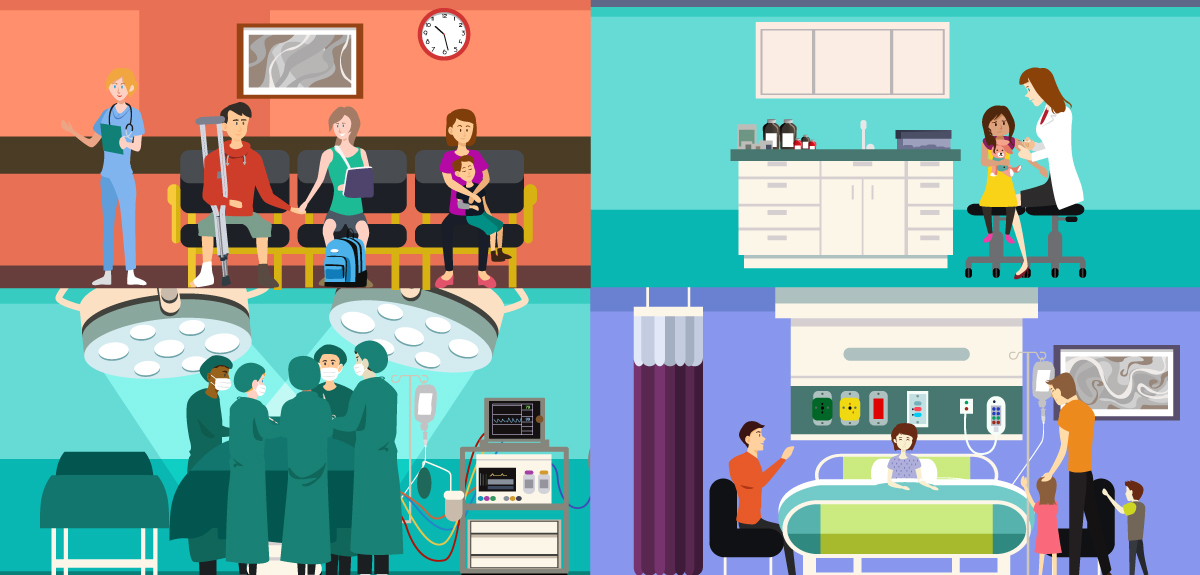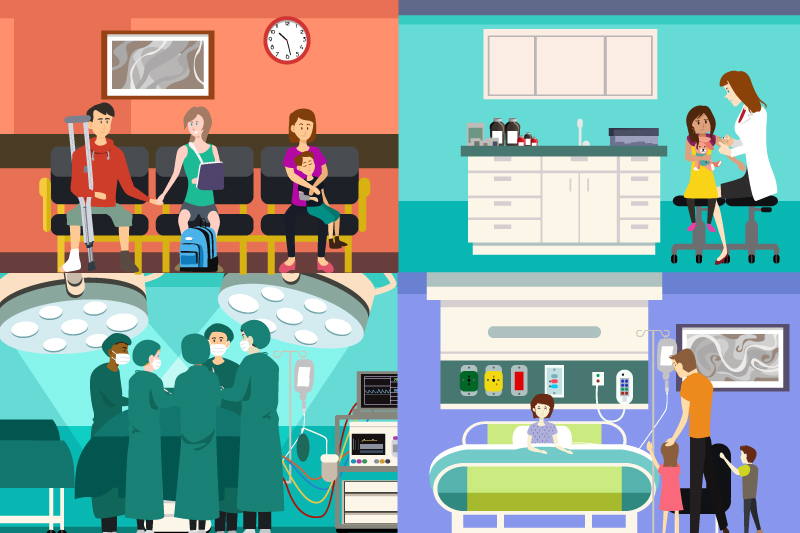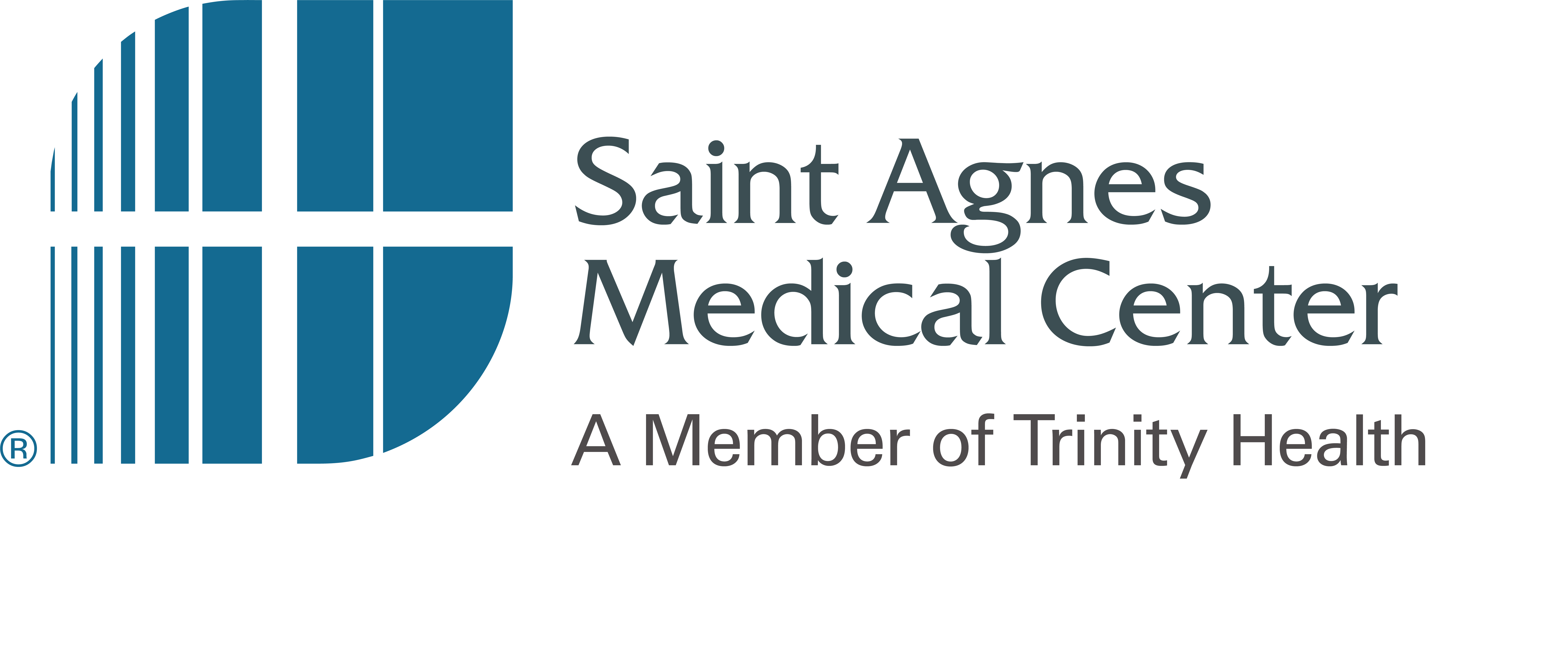Know the difference: flu, COVID-19, RSV and the common cold
December 11, 2024
As the winter months roll into the Central Valley, so have common respiratory viruses like the flu, COVID-19, RSV and the common cold. These viruses are similar and share symptoms, which makes it difficult to tell them apart. Understanding the difference can help you take care of yourself when you’re sick and if you need professional care.
Vaccine guidelines
- The flu and COVID-19 vaccines are effective at protecting you against serious complications of influenza and COVID-19.
- Following current COVID-19 guidelines will give you the best protection against new viral variants.
- Depending on your age and risk factors your doctor may recommend an RSV vaccination.
Influenza (flu)
Influenza A, B and C are different strains of the flu that can infect people. Cases of influenza A and B uptick during the winter and can cause severe symptoms while influenza C is common year-round but doesn’t make you as sick. If you have the flu, you may experience the following symptoms:
- Fever
- Chills
- Body aches
- Runny or stuff nose
- Sore throat
- Vomiting or diarrhea (typically in children)
The flu is usually treatable at home with rest and fluids. If you are experiencing severe symptoms, your doctor may prescribe antiviral medication.
COVID-19
COVID-19 and the flu have many common symptoms. The only way to know the differences is by conducting a test. Symptoms of COVID-19 can vary each year with new variants. Possible symptoms include:
- Fever or chills
- Cough
- Shortness of breath or difficulty breathing
- Sore throat
- Congestion or runny nose
- New loss of taste or smell
- Fatigue
- Muscle or body aches
- Headache
- Nausea or vomiting
Like the flu, most people can recover from COVID with rest and fluids. If you are at high risk for severe symptoms or have concerns, contact your doctor. They may prescribe you antiviral medication.
Respiratory Syncytial Virus (RSV)
RSV is a common virus that mainly affects the nose, throat and lungs. In young infants or older adults, it can become dangerous and even lead to a hospital stay. Symptoms can include:
- Runny nose
- Congestion
- Decrease in appetite
- Coughing
- Sneezing
- Fever
Symptoms usually appear in stages, and in young infants, symptoms may only be irritability, breathing difficulties and decreased activity. Seek emergency care if your child is struggling to breath, has worsening symptoms or isn’t getting fluids. In adults, RSV will go away on its own with rest and fluids. If you have concerns or struggle to get enough fluids, speak with a health care professional.
Common Cold
The common cold is a contagious virus that affects your nose, throat, sinuses and windpipe. Like its name implies, colds are very common and some people will get several colds a year. Symptoms can happen in stages including the following:
- Low-grade fever
- Sore throat
- Mild hacking cough
- Achy muscles and bones
- Headache
- Mild fatiuge
- Chills
- Stuffy, runny nose
- Scratchy, tickly throat
- Sneezing
There is no cure for the common cold but it usually goes away within 7-10 days.
Keeping yourself safe from viruses
With all viruses, prevention is an important part of staying healthy. Washing and sanitizing hands and surfaces is an easy and effective way to avoid viruses. Supporting your immune system through healthy eating and taking vitamins may help fight off germs.
Establish with a primary care provider
If you don't already have a primary care provider (PCP), it's best or do so now before you get sick. Having a primary care doctor can help you avoid wait times at urgent cares and potentially higher copays when you get sick.

What type of care do you need?
Developing an illness can be stressful and with so many care options available these days, knowing where to go to get the appropriate level of care can be a challenge. We've developed a guide to help you assess your health needs so you can choose the right location to receive care.
Know Where to Go